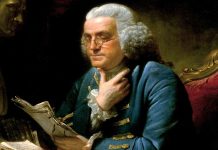Michael Faraday was one of the most influential physicists of all time. He was an autodidact, meaning he taught himself almost everything he knew and achieved. His discoveries in electricity and magnetism fundamentally changed how scientists understand and use these forces in everyday life. Among his many achievements, Faraday is most significant for his discovery of electromagnetic induction, a finding that laid the foundation for the generation of electricity from other sources. This article will explore the life and work of this influential physicist and inventor, particularly focusing on his discovery of electromagnetic induction.
Childhood and Education
Michael Faraday was born on September 22, 1791 in London, England. From a young age, Faraday showed an aptitude for scientific curiosity and was known for taking apart clocks and other objects to determine how they worked. He had to start working at 13, so he never received any formal education in the sciences. However, he was fortunate to be an apprentice to a bookbinder George Riebau, a man who was passionate about science and encouraged Faraday to read scientific books. Faraday quickly demonstrated his intellectual promise, readying books on physics, chemistry, and mathematics. He demonstrated his academic fervor when he attended weekly lectures by the renowned chemist Sir Humphry Davy.
Career and Discoveries
Faraday responded to a vacancy announced in the newspaper by Davy, and was accepted as an assistant laboratory worker at the Royal Institution of Great Britain in 1813. After demonstrating exceptional skill and acumen, Faraday was eventually appointed to the prestigious Davidson Chair of Chemistry in 1825. Here, he conducted numerous ground-breaking experiments, leading to significant contributions in the field of electromagnetism, which stirred a wave of excitement among physicists and chemists.
One of his most famous discoveries was of electromagnetic induction, a phenomena where a changing magnetic flux can generate an electric current. Before Faraday’s discovery, most physicists believed that electricity and magnetism were separate entities, but Faraday provided evidence that they are linked and mutually affect each other. He first demonstrated electromagnetic induction in 1831 by building a wire-wrapped iron ring, which he called the electric homopolar motor. This simple machine did not require a battery and generated a spark even when the current was turned off. Faraday concluded that the electricity was generated by the ring itself due to a changing magnetic field.
Other Major Discoveries
Michael Faraday was a prolific physicist and innovator, making contributions to the field of chemistry as well. One significant discovery was that of the Faraday Effect, which explains that the polarization of light is affected by the presence of a magnetic field. He also invented a new type of optical glass, referred to as ‘Faraday’s glass’, which was extremely resistant to shattering or cracking. His research into soft-iron cores and the invention of the transformer eventually led to the adoption of electricity in homes, businesses, and factories. In addition to his research, Faraday was also a renowned public lecturer, which he continued throughout his career.
Legacy of Michael Faraday
Michael Faraday’s discoveries were critical in the development of many of the technologies used today, from electric generators and transformers to cell phones and computers. His work is firmly enshrined in both electricity and chemistry and is still a major part of any college course in these disciplines. He is highly revered and is often referred to as “the father of electricity.” He also heavily influenced later generations of physicists and chemists, including Albert Einstein and James Clerk Maxwell, who built on his discoveries.
Michael Faraday is widely regarded as one of the most influential physicists of all time, thanks to discoveries such as electromagnetic induction, the Faraday Effect, and optical glass. His work focused primarily on electricity and magnetism and ushered in the era of modern electricity. From the invention of electric motors and generators to the concept of the transformer and soft iron cores, the concepts and inventions he began are still used and improved upon today. Faraday’s influence is still felt today and he will likely remain an important part of the legacy of modern physics.














